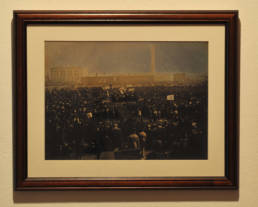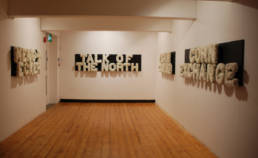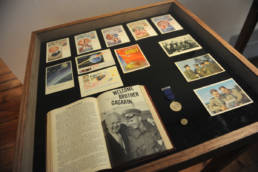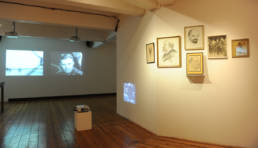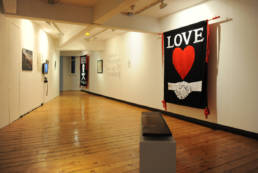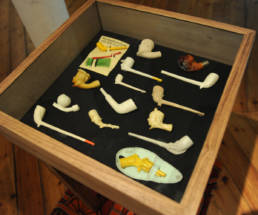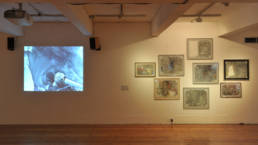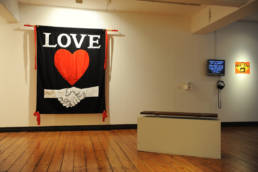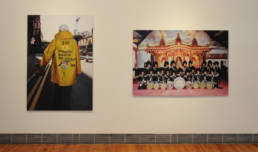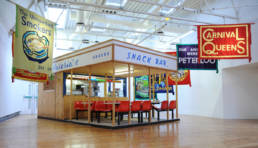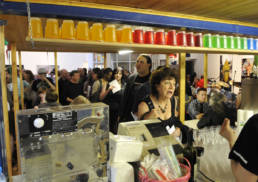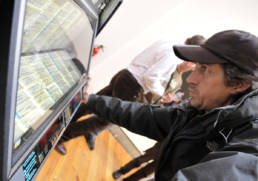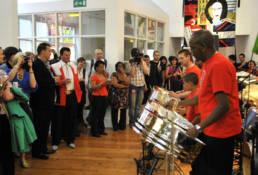Jeremy Deller / Procession: An Exhibition
Cornerhouse and Manchester International Festival
29 July 2009 → 23 Aug 2009
At 2pm on 5 July 2009, Jeremy Deller’s Procession moved north up Deansgate, one of Manchester’s main commercial streets, with thousands of residents lining the pavements. It was a celebratory spectacle that included traditional processional stalwarts such as Rose Queens and brass bands, representations of historical and contemporary myth and folklore such as decedents of those present at the Peterloo Massacre or fans of The World of Twist, and unconstituted groups who are rarely celebrated in public such as smokers, modified car enthusiasts and Big Issue sellers. Whether to provide images of propaganda, power, extravagance, or moments of common participation and entertainment, processions reflect the societies that make them, and though Manchester is not shy of conveying its achievements, this once ubiquitous vehicle for such expression has long been replaced with sophisticated marketing campaigns that appropriate the local vernacular and sell it back to itself, rendering it anodyne. Procession proposed a revival of a traditional means of expression, and offered the opportunity for a wide variety of communities that make up contemporary Greater Manchester to reveal themselves and their ideas to a watching world.
Procession: An Exhibition was not a verbatim account of the event it accompanied, nor a thorough document of the history of processions in Britain or even the north west of England. Instead it was an idiosyncratic and eclectic gathering of images, objects and films, which – when experienced together – formed a complex web of historical, social and cultural change. A number of significant moments that occurred in the Greater Manchester area were identified and provided the armature around which personal accounts and relics looped. Such moments included Yuri Gagarin’s visit to Manchester in 1961 three months after becoming the first man in space, Jerry Lee Lewis’s legendary performance at Granada studios in 1964 and Ghandi’s surprise appearance in the nearby Lancashire town of Darwen in 1931. The exhibition also included a number of items from Procession itself, such as the banners designed by Ed Hall in collaboration with each of the groups, and a full scale model of Valerie’s Café from Bury Market which functioned first as a float and then as meeting and event space in the gallery.
The exhibition was made possible through the generous support of those institutions and individuals who lent us their objects, films and histories: The Northwest Film Archive, The Working Class Movement Library, The Museum of Science and Industry, Manchester Art Gallery, Johnnie Hamp, POSTCARDS, Fred, Dave Haslam, Sheila Lemoine, The Peterloo Memorial Campaign, Dr.Adjit Halder, Ken Hulme, Philip McKeiver and Nicola Axford.
